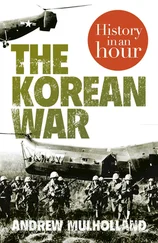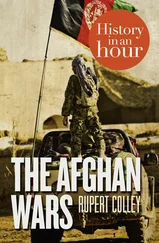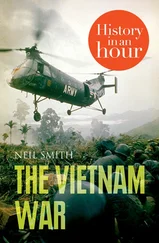Winston Churchill - The River War (History of the War in Sudan)
Здесь есть возможность читать онлайн «Winston Churchill - The River War (History of the War in Sudan)» — ознакомительный отрывок электронной книги совершенно бесплатно, а после прочтения отрывка купить полную версию. В некоторых случаях можно слушать аудио, скачать через торрент в формате fb2 и присутствует краткое содержание. Жанр: unrecognised, на английском языке. Описание произведения, (предисловие) а так же отзывы посетителей доступны на портале библиотеки ЛибКат.
- Название:The River War (History of the War in Sudan)
- Автор:
- Жанр:
- Год:неизвестен
- ISBN:нет данных
- Рейтинг книги:4 / 5. Голосов: 1
-
Избранное:Добавить в избранное
- Отзывы:
-
Ваша оценка:
- 80
- 1
- 2
- 3
- 4
- 5
The River War (History of the War in Sudan): краткое содержание, описание и аннотация
Предлагаем к чтению аннотацию, описание, краткое содержание или предисловие (зависит от того, что написал сам автор книги «The River War (History of the War in Sudan)»). Если вы не нашли необходимую информацию о книге — напишите в комментариях, мы постараемся отыскать её.
The River War is a historical book by Winston Churchill, concerning his experiences as a British Army officer, during the Mahdist War (1881–99) in the Sudan. The River War tells a story of the British imperial involvement in the Sudan, and the Mahdi War between the British forces, led by Lord Kitchener, and the Dervish forces, led by Khalifa Abdallahi ibn Muhammad, «The Mahdi», heir to the self-proclaimed Mahdi Muhammad Ahmad who had embarked on a campaign to conquer Egypt, to drive out the Ottomans.
The River War (History of the War in Sudan) — читать онлайн ознакомительный отрывок
Ниже представлен текст книги, разбитый по страницам. Система сохранения места последней прочитанной страницы, позволяет с удобством читать онлайн бесплатно книгу «The River War (History of the War in Sudan)», без необходимости каждый раз заново искать на чём Вы остановились. Поставьте закладку, и сможете в любой момент перейти на страницу, на которой закончили чтение.
Интервал:
Закладка:
In the account of the River War the Nile is naturally supreme. It is the great melody that recurs throughout the whole opera. The general purposing military operations, the statesman who would decide upon grave policies, and the reader desirous of studying the course and results of either, must think of the Nile. It is the life of the lands through which it flows. It is the cause of the war: the means by which we fight; the end at which we aim. Imagination should paint the river through every page in the story. It glitters between the palm-trees during the actions. It is the explanation of nearly every military movement. By its banks the armies camp at night. Backed or flanked on its unfordable stream they offer or accept battle by day. To its brink, morning and evening, long lines of camels, horses, mules, and slaughter cattle hurry eagerly. Emir and Dervish, officer and soldier, friend and foe, kneel alike to this god of ancient Egypt and draw each day their daily water in goatskin or canteen. Without the river none would have started. Without it none might have continued. Without it none could ever have returned.
All who journey on the Nile, whether in commerce or war, will pay their tribute of respect and gratitude; for the great river has befriended all races and every age. Through all the centuries it has performed the annual miracle of its flood. Every year when the rains fall and the mountain snows of Central Africa begin to melt, the head-streams become torrents and the great lakes are filled to the brim. A vast expanse of low, swampy lands, crossed by secondary channels and flooded for many miles, regulates the flow, and by a sponge-like action prevents the excess of one year from causing the deficiency of the next. Far away in Egypt, prince, priest, and peasant look southwards with anxious attention for the fluctuating yet certain rise. Gradually the flood begins. The Bahr-el-Ghazal from a channel of stagnant pools and marshes becomes a broad and navigable stream. The Sobat and the Atbara from dry watercourses with occasional pools, in which the fish and crocodiles are crowded, turn to rushing rivers. But all this is remote from Egypt. After its confluence with the Atbara no drop of water reaches the Nile, and it flows for seven hundred miles through the sands or rushes in cataracts among the rocks of the Nubian desert. Nevertheless, in spite of the tremendous diminution in volume caused by the dryness of the earth and air and the heat of the sun—all of which drink greedily—the river below Assuan is sufficiently great to supply nine millions of people with as much water as their utmost science and energies can draw, and yet to pour into the Mediterranean a low-water surplus current of 61,500 cubic feet per second. Nor is its water its only gift. As the Nile rises its complexion is changed. The clear blue river becomes thick and red, laden with the magic mud that can raise cities from the desert sand and make the wilderness a garden. The geographer may still in the arrogance of science describe the Nile as 'a great, steady-flowing river, fed by the rains of the tropics, controlled by the existence of a vast head reservoir and several areas of repose, and annually flooded by the accession of a great body of water with which its eastern tributaries are flushed' (ENCYCLOPAEDIA BRITANNICA); but all who have drunk deeply of its soft yet fateful waters—fateful, since they give both life and death—will understand why the old Egyptians worshipped the river, nor will they even in modern days easily dissociate from their minds a feeling of mystic reverence.
South of Khartoum and of 'The Military Soudan' the land becomes more fruitful. The tributaries of the Nile multiply the areas of riparian fertility. A considerable rainfall, increasing as the Equator is approached, enables the intervening spaces to support vegetation and consequently human life. The greater part of the country is feverish and unhealthy, nor can Europeans long sustain the attacks of its climate. Nevertheless it is by no means valueless. On the east the province of Sennar used to produce abundant grain, and might easily produce no less abundant cotton. Westward the vast territories of Kordofan and Darfur afford grazing-grounds to a multitude of cattle, and give means of livelihood to great numbers of Baggara or cow-herd Arabs, who may also pursue with activity and stratagem the fleet giraffe and the still fleeter ostrich. To the south-east lies Bahr-el-Ghazal, a great tract of country occupied by dense woods and plentifully watered. Further south and nearer the Equator the forests and marshes become exuberant with tropical growths, and the whole face of the land is moist and green. Amid groves of gigantic trees and through plains of high waving grass the stately elephant roams in herds which occasionally number four hundred, hardly ever disturbed by a well-armed hunter. The ivory of their tusks constitutes the wealth of the Equatorial Province. So greatly they abound that Emin Pasha is provoked to complain of a pest of these valuable pachyderms (LIFE OF EMIN PASHA, vol.i chapter ix.): and although they are only assailed by the natives with spear and gun, no less than twelve thousand hundredweight of ivory has been exported in a single year (Ibid.) All other kinds of large beasts known to man inhabit these obscure retreats. The fierce rhinoceros crashes through the undergrowth. Among the reeds of melancholy swamps huge hippopotami, crocodiles, and buffaloes prosper and increase. Antelope of every known and many unclassified species; serpents of peculiar venom; countless millions of birds, butterflies, and beetles are among the offspring of prolific Nature. And the daring sportsman who should survive his expedition would not fail to add to the achievements of science and the extent of natural history as well as to his own reputation.
The human inhabitants of the Soudan would not, but for their vices and misfortunes, be disproportioned in numbers to the fauna or less happy. War, slavery, and oppression have, however, afflicted them until the total population of the whole country does not exceed at the most liberal estimate three million souls. The huge area contains many differences of climate and conditions, and these have produced peculiar and diverse breeds of men. The Soudanese are of many tribes, but two main races can be clearly distinguished: the aboriginal natives, and the Arab settlers. The indigenous inhabitants of the country were negroes as black as coal. Strong, virile, and simple-minded savages, they lived as we may imagine prehistoric men—hunting, fighting, marrying, and dying, with no ideas beyond the gratification of their physical desires, and no fears save those engendered by ghosts, witchcraft, the worship of ancestors, and other forms of superstition common among peoples of low development. They displayed the virtues of barbarism. They were brave and honest. The smallness of their intelligence excused the degradation of their habits. Their ignorance secured their innocence. Yet their eulogy must be short, for though their customs, language, and appearance vary with the districts they inhabit and the subdivisions to which they belong, the history of all is a confused legend of strife and misery, their natures are uniformly cruel and thriftless, and their condition is one of equal squalor and want.
Although the negroes are the more numerous, the Arabs exceed in power. The bravery of the aboriginals is outweighed by the intelligence of the invaders and their superior force of character. During the second century of the Mohammedan era, when the inhabitants of Arabia went forth to conquer the world, one adventurous army struck south. The first pioneers were followed at intervals by continual immigrations of Arabs not only from Arabia but also across the deserts from Egypt and Marocco. The element thus introduced has spread and is spreading throughout the Soudan, as water soaks into a dry sponge. The aboriginals absorbed the invaders they could not repel. The stronger race imposed its customs and language on the negroes. The vigour of their blood sensibly altered the facial appearance of the Soudanese. For more than a thousand years the influence of Mohammedanism, which appears to possess a strange fascination for negroid races, has been permeating the Soudan, and, although ignorance and natural obstacles impede the progress of new ideas, the whole of the black race is gradually adopting the new religion and developing Arab characteristics. In the districts of the north, where the original invaders settled, the evolution is complete, and the Arabs of the Soudan are a race formed by the interbreeding of negro and Arab, and yet distinct from both. In the more remote and inaccessible regions which lie to the south and west the negro race remains as yet unchanged by the Arab influence. And between these extremes every degree of mixture is to be found. In some tribes pure Arabic is spoken, and prior to the rise of the Mahdi the orthodox Moslem faith was practised. In others Arabic has merely modified the ancient dialects, and the Mohammedan religion has been adapted to the older superstitions; but although the gap between the Arab-negro and the negro-pure is thus filled by every intermediate blend, the two races were at an early date quite distinct.
Читать дальшеИнтервал:
Закладка:
Похожие книги на «The River War (History of the War in Sudan)»
Представляем Вашему вниманию похожие книги на «The River War (History of the War in Sudan)» списком для выбора. Мы отобрали схожую по названию и смыслу литературу в надежде предоставить читателям больше вариантов отыскать новые, интересные, ещё непрочитанные произведения.
Обсуждение, отзывы о книге «The River War (History of the War in Sudan)» и просто собственные мнения читателей. Оставьте ваши комментарии, напишите, что Вы думаете о произведении, его смысле или главных героях. Укажите что конкретно понравилось, а что нет, и почему Вы так считаете.












